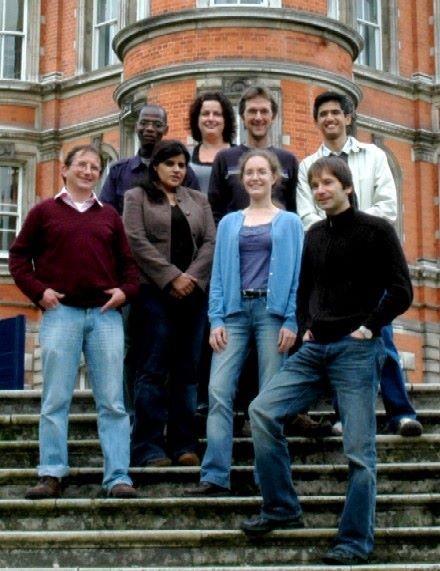Research output per year
Research output per year
Professor
TW20 0EX
Research Group


These two branches of signalling are the major controller of cell growth and cell division in yeast and in animal cells, but their function in plants is still elusive. We use reverse-genetic approaches to up and down-regulate the activity of selected components of these signalling pathways and thus to study their function. We are also looking for new and possibly plant-specific components and targets of the MAPK and PDK1 signalling pathways, using protein interaction screens and phopshoproteomics.
In higher plants, growth is coordinated both by developmental cues and by environment. The focus of our research is to understand plant growth by studying signalling mechanisms regulating plant cell division and growth. We are analysing two such signalling pathways in Arabidopsis, the mitogen-activated protein kinase (MAPK) cascade and recently we started working on the phospholipid-activated protein kinase signalling pathway, involving PDK1. These two branches of signalling are the major controller of cell growth and cell division in yeast and in animal cells, but their function in plants is still elusive. We use reverse-genetic approaches to up and down-regulate the activity of selected components of these signalling pathways and thus to study their function. We are also looking for new and possibly plant-specific components and targets of the MAPK and PDK1 signalling pathways, using protein interaction screens and phopshoproteomics.
Signalling pathways influence cell divisions through conserved cell cycle regulators. We found, that one of the cyclins is rate limiting for entry into mitosis, and thus potentially could be targeted by signalling pathways to influence cell division.
More recently, attention has focused on transcription factors regulating cell cycle progression, called E2Fs. His group showed that E2Fb expression and stability is tightly controlled by the plant hormone auxin. In collaboration with the group of Dr Beatrix Horvath at Wageningen we have discovered a critical growth regulator in potato and Arabidopsis, EBP1, and showed that it connects to the regulation of cell proliferation through RBR1 In a recent project, in collaboration with E. Lopez-Juez we were searching for links between light signals and growth processes.

Plant growth is of great economical and intellectual interest. Plants are the basis of our living environment, the production of our food and a myriad of plantbased natural products. Plant bio-mass is also becoming an important renewable energy resource. Agricultural plant cultivation and breeding programs have altered plant productivity and yield parameters extensively, yet the principles and underlying mechanisms are not well understood. At the cellular level, growth is the result of only two processes, cell division and cell expansion, but these two processes are controlled by intertwined signaling cascades and regulatory mechanisms forming complex regulatory networks. Ultimately this network is what plant scientists are trying to unravel. The sequencing of model and agronomically important plant genomes allows complete insight into the molecular components involved in each process. Methods to quantify the molecular changes, image growth processes and reconstruct growth regulatory networks are rapidly developing. This knowledge should help to elucidate key regulators and to design methods to engineer plant architecture and growth parameters for future human needs.
In 2015, UN member states agreed to 17 global Sustainable Development Goals (SDGs) to end poverty, protect the planet and ensure prosperity for all. This person’s work contributes towards the following SDG(s):
Research output: Contribution to journal › Article › peer-review
Research output: Contribution to journal › Article › peer-review
Research output: Contribution to journal › Article › peer-review
Research output: Contribution to journal › Article › peer-review
Research output: Contribution to journal › Article › peer-review
1/10/16 → 30/09/18
Project: Research
Bogre, L., Paccanaro, A. & Papdi, C.
1/05/13 → 30/04/15
Project: Research
Paccanaro, A., Bogre, L. & Horvath, B.
1/03/13 → 28/02/15
Project: Research
1/08/10 → 31/07/11
Project: Research